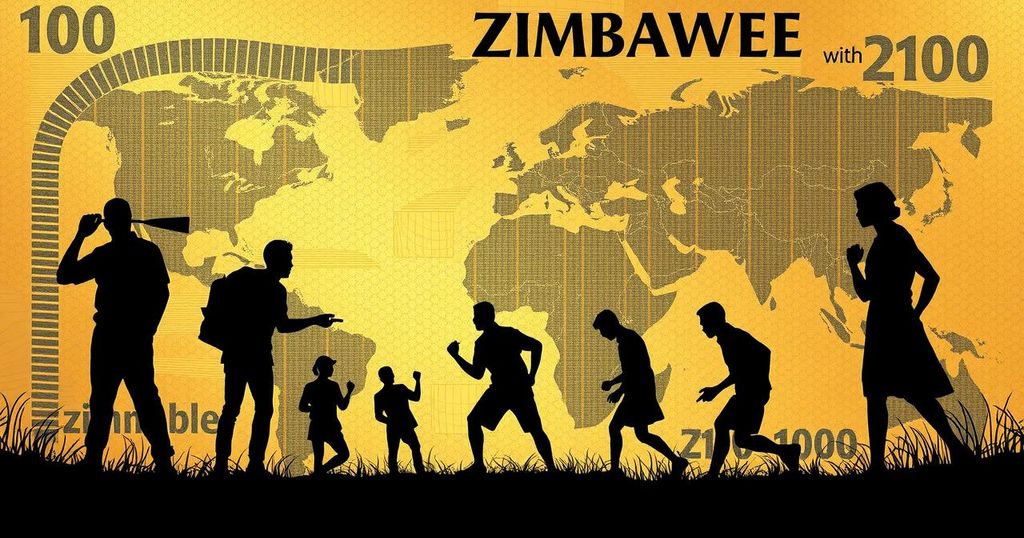Zimbabwe’s Gold-Backed Currency Faces Severe Confidence Crisis
Zimbabwe’s gold-backed currency, the Zimbabwe Gold (ZiG), faces a confidence crisis as illegal money changers offer inflated exchange rates amid rising inflation. The ZiG has depreciated significantly since its inception, prompting a majority to favor transactions in US dollars. The Reserve Bank of Zimbabwe is implementing strategies to mitigate these challenges, but public trust remains a critical issue.
Zimbabwe’s newest currency, the Zimbabwe Gold (ZiG), is encountering a significant crisis of confidence as citizens struggle to engage with it effectively. The emergence of illegal money changers across the nation, offering deals at rates considerably higher than official exchanges, exemplifies a pervasive lack of trust in the ZiG. In major urban centers like Harare and Bulawayo, these informal traders conduct operations in close proximity to governmental offices, highlighting an underground economy flourishing amidst the challenging economic landscape. The rapid increase in the month-on-month inflation rate of the ZiG, which surged to 1.4% in August from a mere 0.1% in July, reflects the burgeoning challenges the currency faces. Furthermore, the ZiG’s official value has depreciated against the US dollar—trading at ZiG13.80 to the dollar compared to ZiG13.56 in April. In stark contrast, businesses opt for rates as high as ZiG26 to the dollar to access the foreign currency critical for transactions. Despite stringent governmental measures, including hefty fines and arrests of illegal forex traders, the parallel market remains unchecked and robust. Economic analysts attribute the widening gap in exchange rates to a deep-seated distrust in Zimbabwe’s formal financial system, prompting both consumers and businesses to favor transacting in US dollars. Chenayi Mutambasere, an economist, underscores the significance of improving access to formal banking systems to address the root issues of unbanked populations relying on informal means. Moreover, persistent inflationary pressures and the fallout from a drought-induced spike in government spending exacerbate the existing economic strain. Development economists stress the urgent need for the country to bolster its gold reserves, essential for stabilizing the ZiG. As stated by Prosper Chitambara, unsustainable money supply growth endangers macroeconomic stability. In response to the challenges confronting the ZiG, the Reserve Bank of Zimbabwe (RBZ) is implementing measures to stabilize the currency and uphold its core mandate of ensuring price and currency stability. Plans include significant financial injections into the interbank market to mitigate the pressures faced by the ZiG. However, analysts caution that public perception of the currency’s value is largely driven by local sentiment rather than central bank interventions.
The Zimbabwe Gold (ZiG) was introduced as part of an economic recovery initiative designed to stabilize the local currency amid skyrocketing inflation and a shrinking economy. The country’s historical reliance on foreign currency, particularly the US dollar, has exacerbated challenges for the ZhG as residents continue to engage in illegal currency exchanges. The significant disparity between the official and parallel market exchange rates reflects widespread skepticism regarding governmental currency management and economic policy, necessitating urgent reforms to restore confidence in the local currency.
In summary, Zimbabwe’s endeavor to stabilize its economy through the Zimbabwe Gold is critically undermined by rampant inflation, illegal forex trading, and a lack of public trust in its currency. While the Reserve Bank of Zimbabwe is taking steps to inject liquidity and stabilize the market, the underlying issues of economic perception, inflation pressures, and reliance on the US dollar persist as formidable barriers to achieving long-term economic stability and confidence in the ZiG.
Original Source: www.theafricareport.com




Post Comment